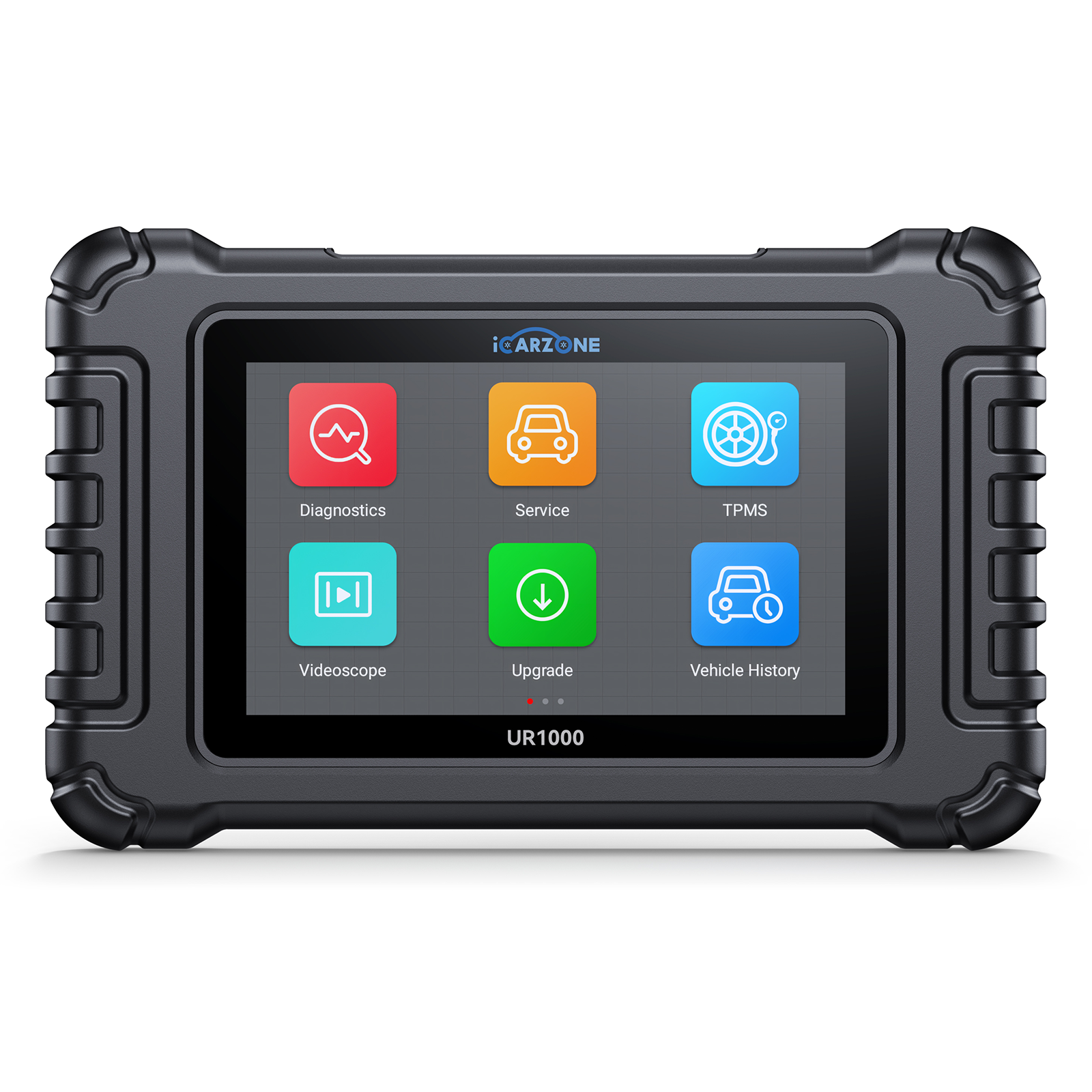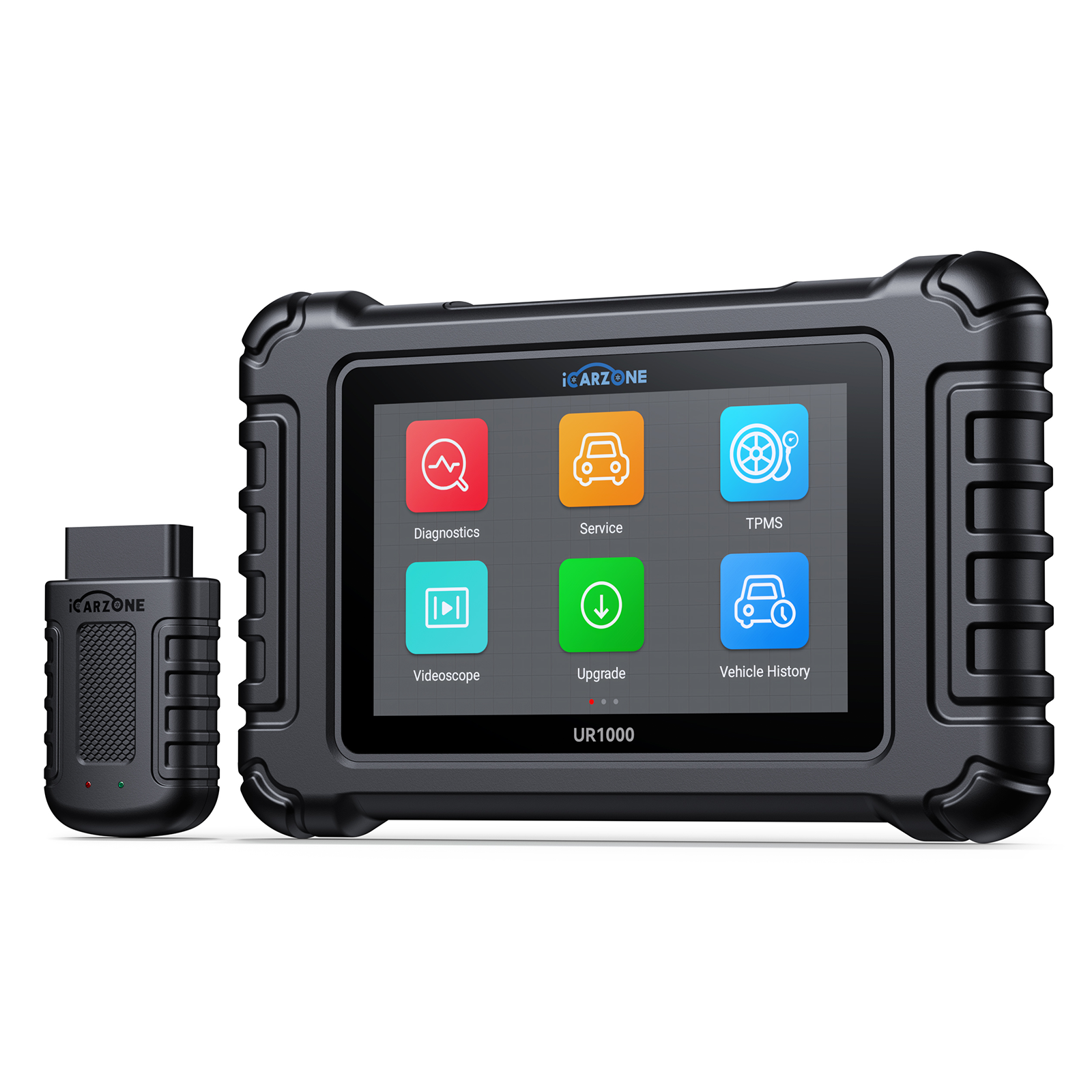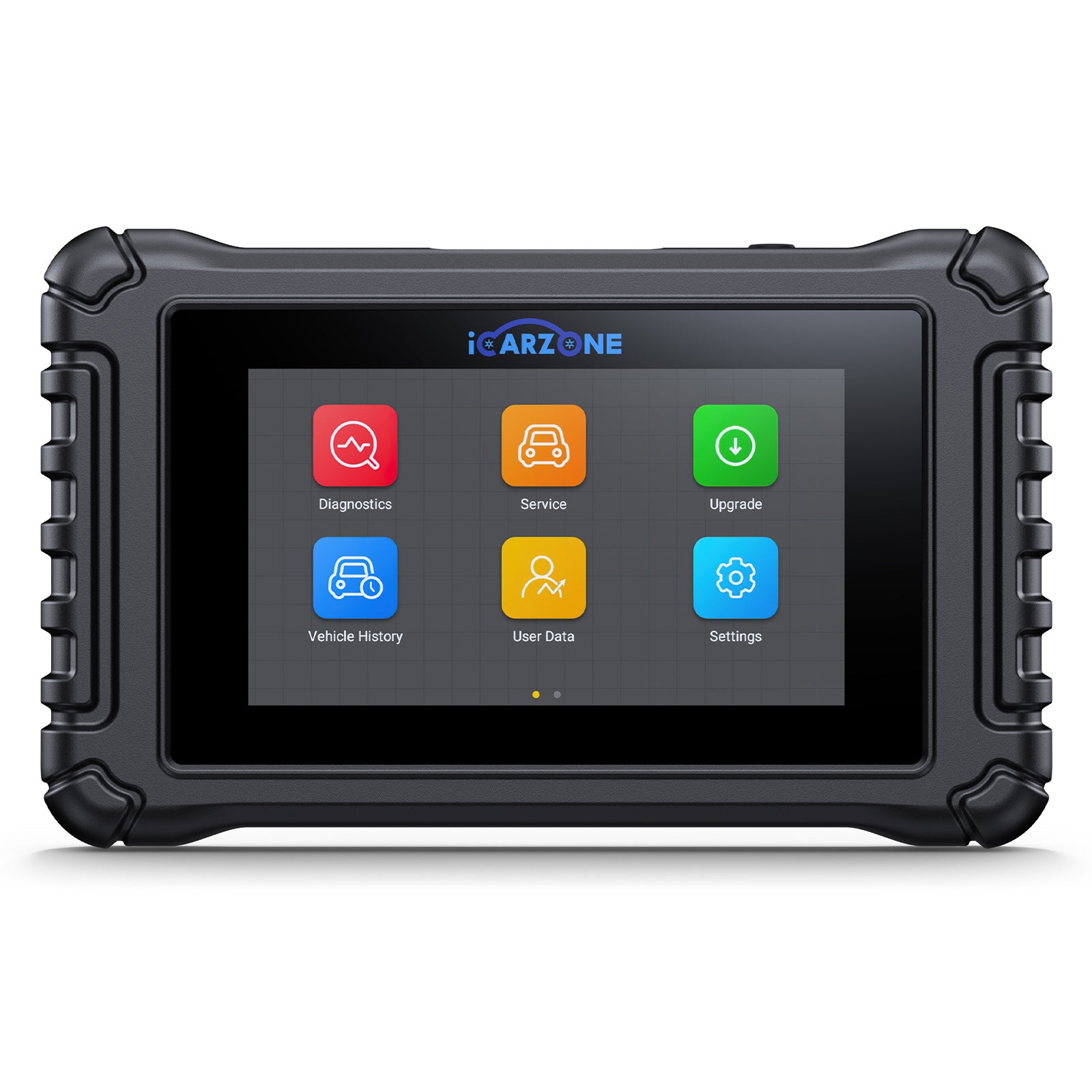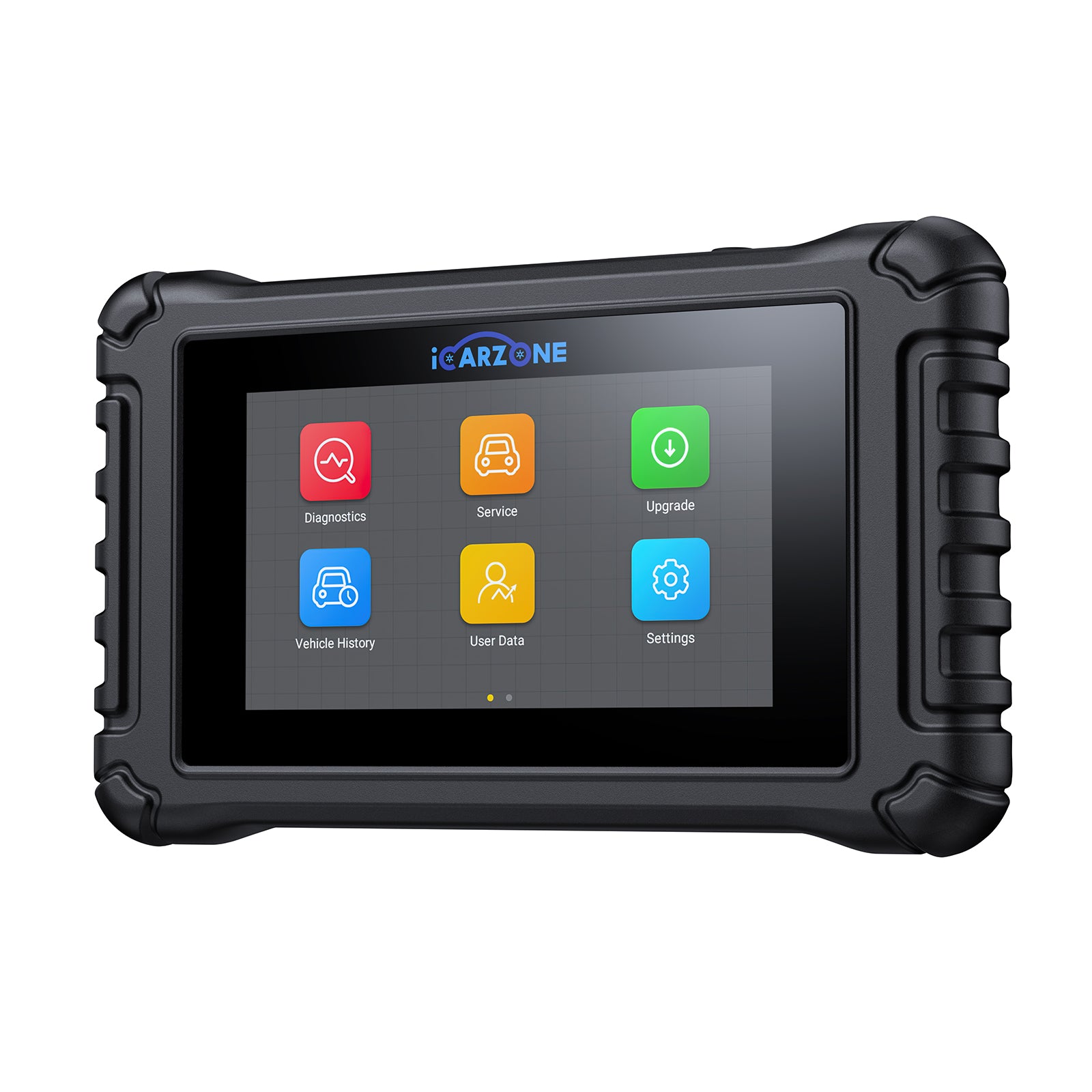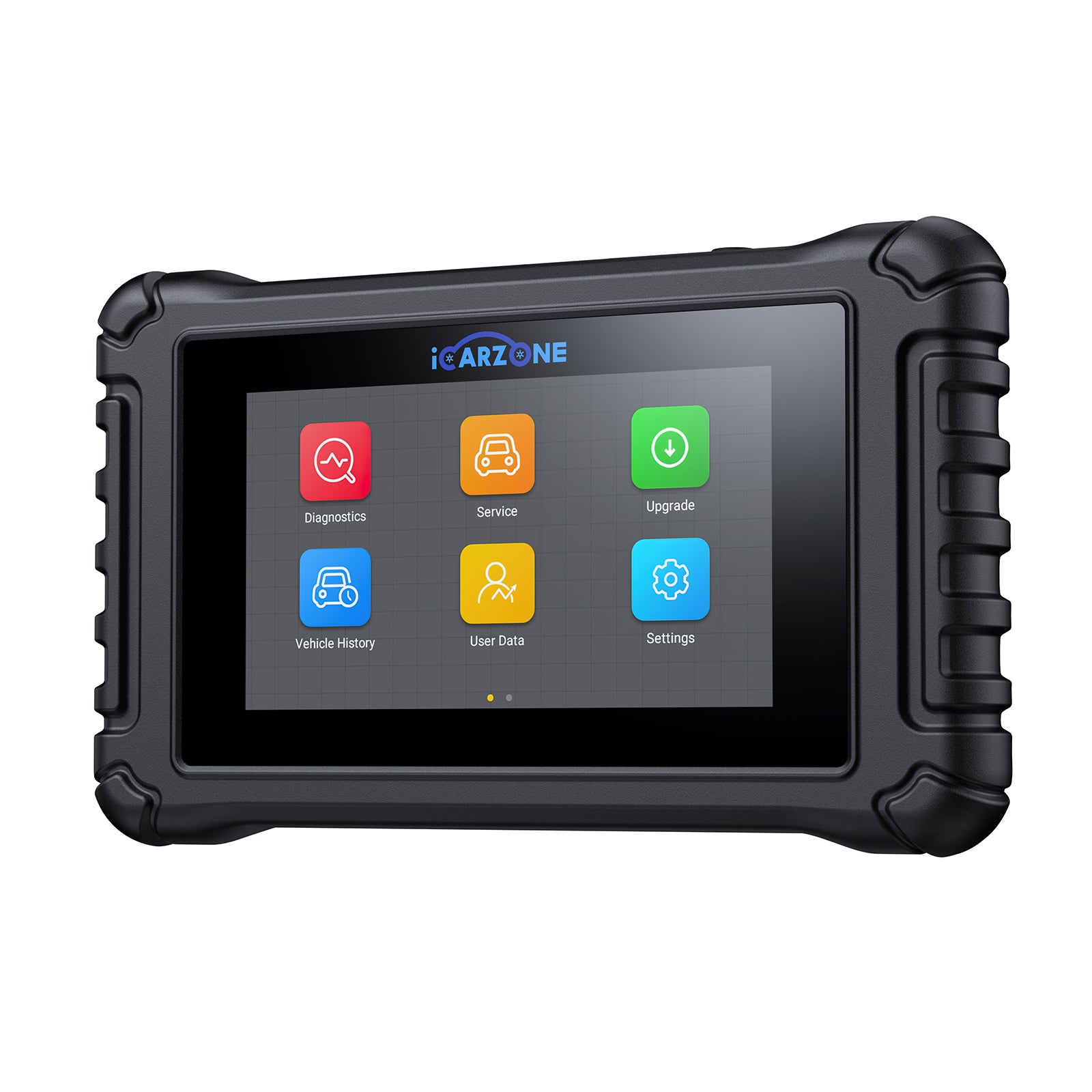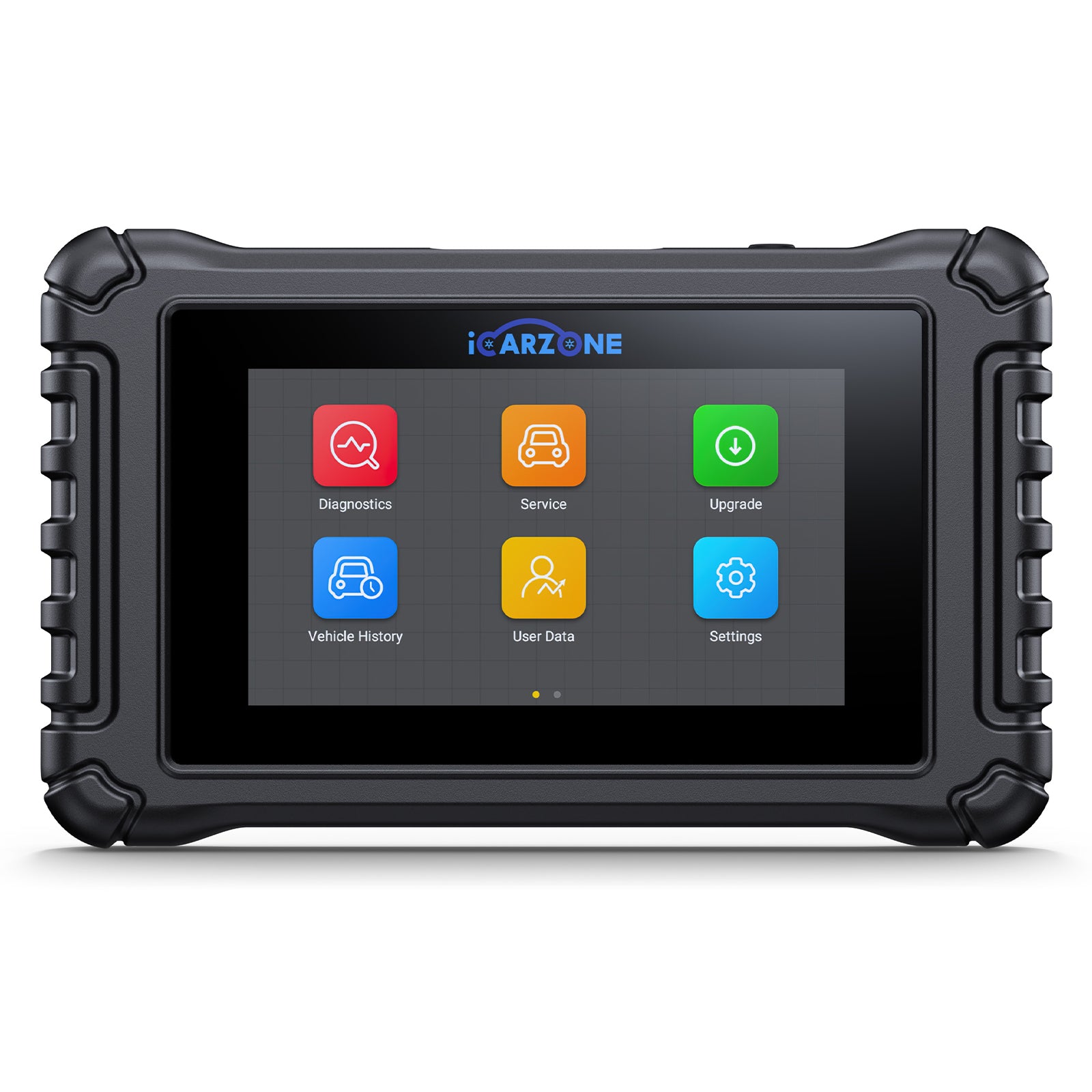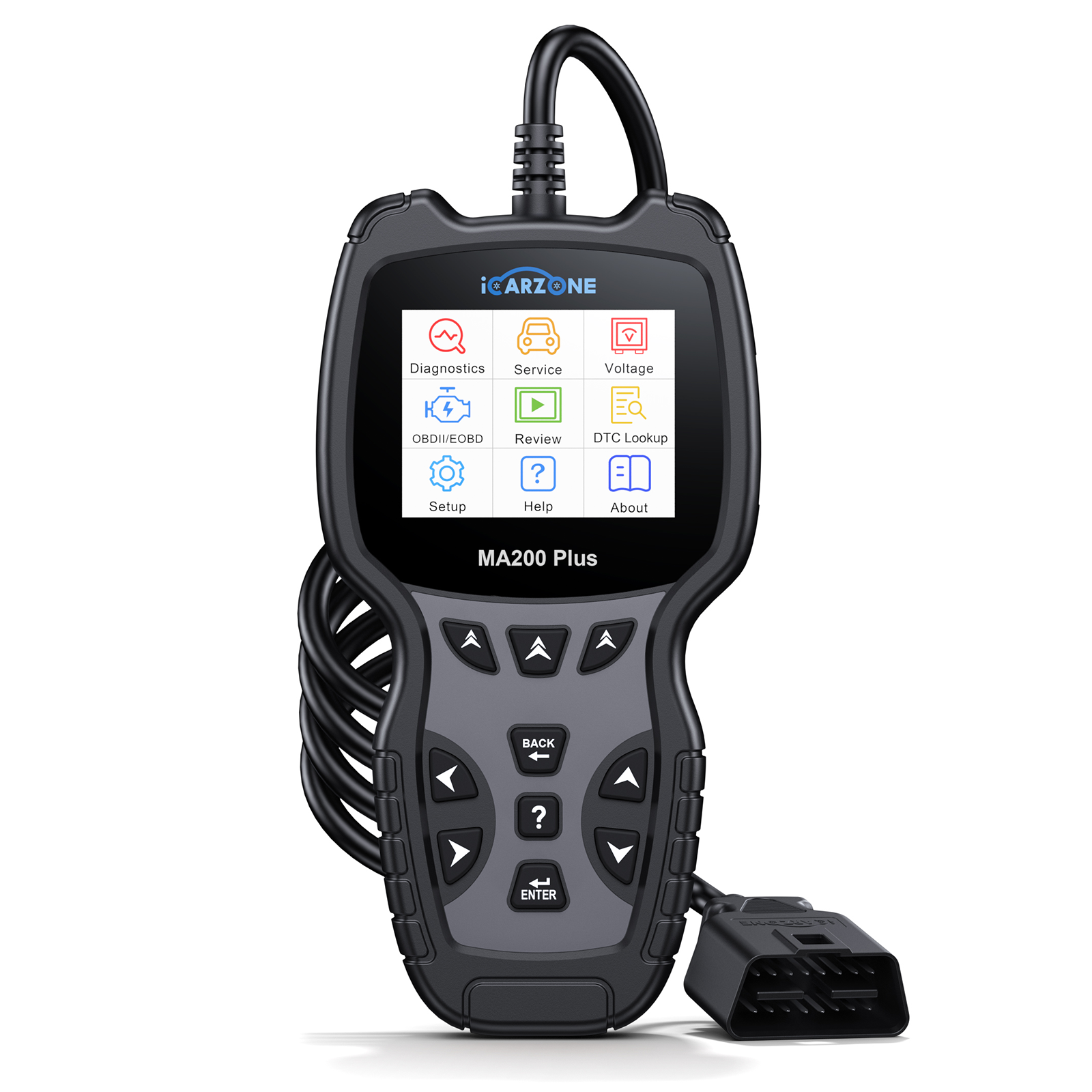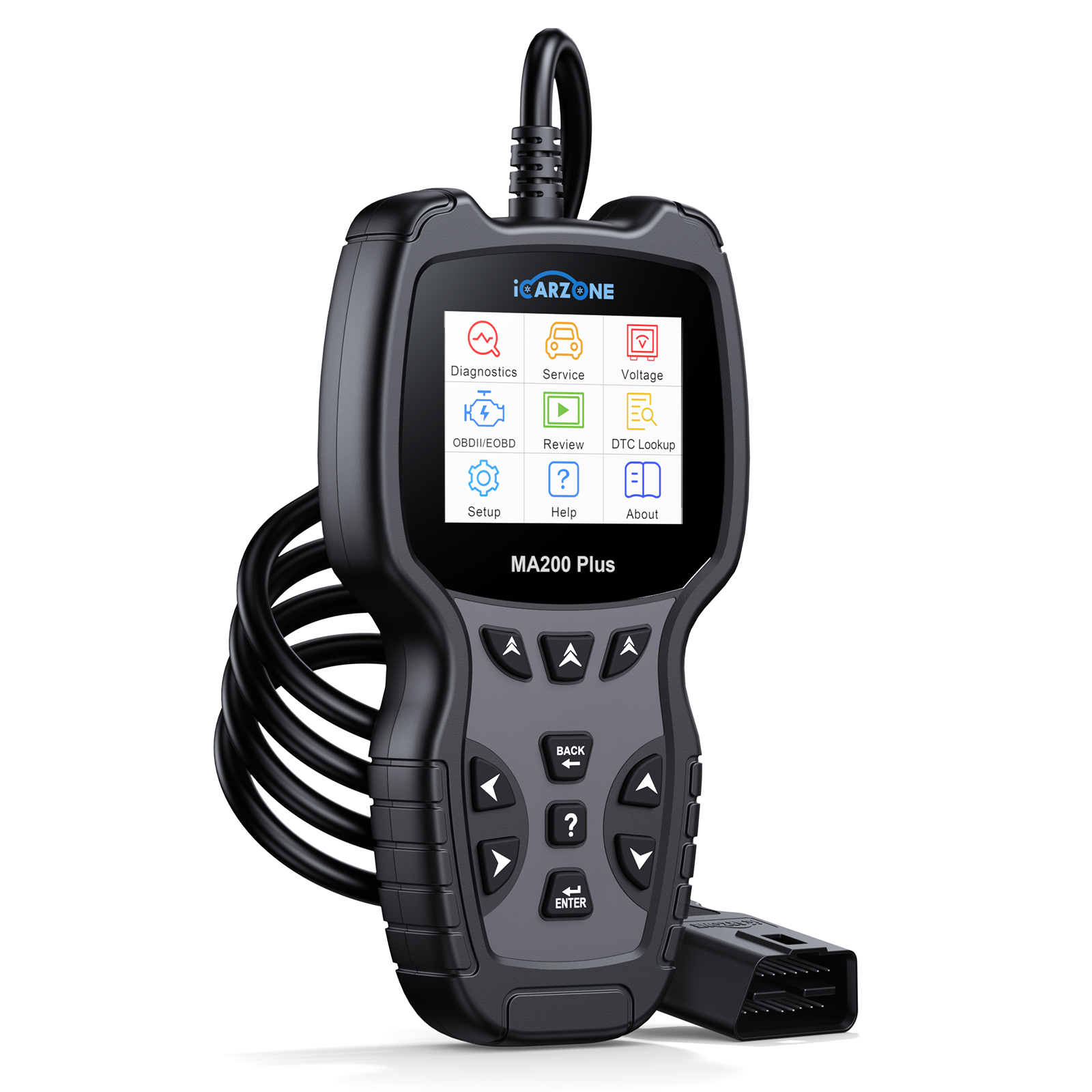P0171 Honda Civic Fix: Diagnose & Repair Fuel System Lean (2016-2022) | UR800 Guide

Summary: This guide helps 2016-2022 Honda Civic owners fix P0171 (Fuel System Lean Bank 1). Learn common causes like vacuum leaks, diagnose with iCarzone UR800, and perform DIY repairs to restore fuel efficiency and performance.
P0171: Fix Fuel System Lean in 2016-2022 Honda Civic
Solve rough idle, poor fuel economy & check engine light. Learn to diagnose vacuum leaks, fuel issues & more with iCarzone UR800.
Fix Civic P0171 Today1. What is P0171 in Honda Civic?
P0171 is a diagnostic trouble code indicating a fuel system lean condition (Bank 1) in your Honda Civic. This means the air-fuel mixture in cylinder bank 1 is too lean (too much air, not enough fuel) for proper combustion.
Civic 1.5L Turbo Engine Specifics
In 2016-2022 Honda Civic models with the 1.5L turbocharged engine, Bank 1 refers to all cylinders (since it's an inline-4 engine). This code commonly appears between 30,000-60,000 miles due to the engine's sensitive fuel injection system and turbocharged design.


2. Common Causes of P0171 in 2016-2022 Civic
Based on Civic owner reports and Honda service data, these are the most frequent causes of P0171 in 2016-2022 models:
- Vacuum Leaks — Example: 2018 Civic with 45,000 miles developed P0171. Smoke test revealed cracked PCV hose (common failure point in 1.5L Civics).
- Failing Mass Air Flow (MAF) Sensor — Example: 2019 Civic showed P0171 after 52,000 miles. MAF readings erratic; replacement with Honda 37980-5AA-A01 resolved it.
- Clogged Fuel Injectors — Example: 2017 Civic with P0171 had restricted injectors from low-quality fuel. Ultrasonic cleaning restored proper flow.
- Intake Manifold Gasket Leak — Example: 2020 Civic with 38,000 miles developed leak at manifold-to-head seal—common in turbocharged Civics under boost pressure.
- Fuel Pressure Issues — Example: 2021 Civic P0171 traced to weak fuel pump (40 psi vs spec 51-59 psi) causing insufficient fuel delivery.
3. Symptoms of P0171 in Honda Civic
Civic owners typically notice these specific symptoms when P0171 is present:
- Rough idle, especially noticeable when cold starting
- Check Engine Light illuminated solid (rarely flashes with this code)
- Reduced acceleration power—most noticeable during highway merging
- Increased fuel consumption (3-5 MPG drop reported by owners)
- Hesitation or stumbling during acceleration
- Specific to Civic turbo: Boost pressure fluctuations under load
- Engine may run hotter than normal in warm weather
4. How to Diagnose P0171 with iCarzone UR800
Follow this Civic-specific process using the iCarzone UR800 to pinpoint P0171 causes:
| Step | Action | Tools Needed | Civic-Specific Checks |
|---|---|---|---|
| 1 | Scan & Verify | iCarzone UR800 | Confirm P0171; check live data for fuel trim values (+10%+ indicates lean condition) |
| 2 | Check Vacuum System | Smoke machine or propane torch | Inspect PCV hoses and intake manifold gaskets—common leak points in Civic 1.5L |
| 3 | MAF Sensor Testing | UR800 with live data | Verify MAF readings (2.0-4.0 g/s at idle for Civic turbo models) |
| 4 | Fuel Pressure Test | Fuel pressure gauge | Check for 51-59 psi at idle; Honda Civic spec is critical for proper fuel delivery |
| 5 | Injector Balance Test | UR800 with injector test function | Verify consistent fuel delivery across all injectors (±5% variance acceptable) |
Example: A 2019 Civic with P0171 showed +18% long-term fuel trim on UR800. Smoke testing revealed a cracked turbo inlet hose—common failure point in Civic turbo models that causes unmetered air entry.
Diagnose Civic with UR8005. DIY Fixes for Civic P0171
- Repair Vacuum Leaks: Replace cracked hoses with Honda OEM parts (PCV hose 17130-5AA-A00 common for Civic 1.5L).
- Clean/Replace MAF Sensor: Use CRC MAF cleaner for contamination; replace with Honda 37980-5AA-A01 if faulty.
- Clean Fuel Injectors: Professional ultrasonic cleaning or use Honda-approved fuel system cleaner.
- Replace Intake Manifold Gasket: Use Honda 17105-5AA-A01 gasket set; critical for turbo models under pressure.
- Check Fuel Pressure: Replace fuel pump if below spec (Honda 17045-TBA-A01 for Civic turbo models).
Civic Optimization Tips
- After repairs, use UR800 to perform "ECU Adaptation Reset" for Civic's fuel trim recalibration.
- Always use Top Tier detergent gasoline in Civic turbo engines to prevent injector deposits.
- Inspect turbo hoses annually—boost pressure accelerates wear in 1.5L Civic models.
6. Repair Costs & Safety Tips
- Vacuum Hoses/Repairs: $15–$60 (DIY with OEM parts)
- MAF Sensor (OEM): $85–$150 (Honda genuine part)
- Fuel Injector Cleaning: $80–$150 (professional service)
- Intake Gasket Replacement: $40–$120 (parts) + $150–$300 (labor)
- Fuel Pump Replacement: $180–$350 (OEM part + DIY labor)
Safety Precautions
- Relieve fuel pressure before disconnecting any fuel lines on your Civic.
- Allow engine to cool completely—turbo components retain heat for extended periods.
- Use torque wrench when reinstalling intake manifold (18 ft-lbs for Civic 1.5L).
- Clear codes with UR800 after repairs and perform 20-minute test drive to confirm fix.
7. Preventing P0171 in Civic 1.5L
Avoid P0171 in your Civic with these proactive steps:
- Inspect all vacuum and turbo hoses every 15,000 miles for cracks or loose connections.
- Clean MAF sensor annually with dedicated MAF cleaner to prevent contamination issues.
- Use the iCarzone UR800 monthly to monitor fuel trim values before P0171 illuminates.
- Add fuel system cleaner every 10,000 miles to prevent injector deposits in turbocharged engines.
- Check for Honda TSBs—TSB 19-082 addresses P0171 in 2016-2019 Civics with 1.5L engines.
8. Civic Owner FAQs About P0171
Short distances are possible, but extended driving may cause catalytic converter damage or engine overheating in Civic turbo models.
The 1.5L turbo engine's higher pressure creates more stress on vacuum hoses and gaskets, leading to leaks that cause lean conditions.
Unlikely, but a severely clogged filter can contribute—always replace with Honda 17220-5AA-A00 filter at 30,000 mile intervals.
UR800 provides live fuel trim data, MAF readings, and Honda-specific tests to pinpoint whether the issue is air intake or fuel delivery related.
9. Summary & Next Steps
P0171 (Fuel System Lean Bank 1) is a common issue in 2016-2022 Honda Civic models, especially 1.5L turbo variants. Typically caused by vacuum leaks, MAF sensor issues, or fuel delivery problems, it affects performance and fuel economy. Using the iCarzone UR800, you can accurately diagnose the root cause and perform targeted DIY repairs to restore your Civic's performance.
Fix Civic P0171 with iCarzone UR800
The iCarzone UR800 is optimized for Honda diagnostics, featuring Civic-specific fuel trim analysis and live data to resolve P0171 quickly. Perfect for DIY Civic owners.
Get UR800 for Civic Now


